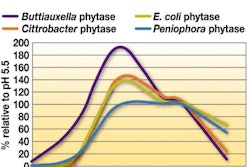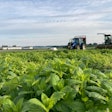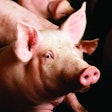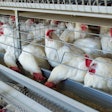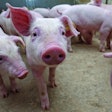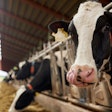The Specialty Feed Ingredients Sustainability (SFIS) Project Consortium, dedicated to reducing the environmental impact of livestock production through innovative specialty feed ingredients, has announced the results of a yearlong study that confirms the role of Specialty Feed Ingredients (SFIs) in reducing the environmental impact of livestock production.
Launched by the International Feed Industry Federation (IFIF) and the E.U. Association of Specialty Feed Ingredients and their Mixtures (FEFANA) in 2013, the overall results of the study show that the use of SFIs in animal diets reduces the consumption of basic feed ingredients. Furthermore, the study demonstrates that the use of SFIs results in clear reductions of the global warming potential, as well as the eutrophication and acidification potential during livestock production.
The rigorous SFIs analysis employed life-cycle assessment (LCA) to examine the use of low-protein diets (nitrogen) and phytase (P) in pigs and poultry. The results of the study were validated by an independent scientific council made up of global experts in the fields of LCA methodology and animal nutrition. In addition to the positive results, the study also points toward future developments, such as improved feed conversion driven by advancing technologies in animal feeding through using SFIs.
"We are delighted that the results of the analysis establish such a clear role for the use of specialty feed ingredients in reducing the environmental impact of livestock production," said Dr. Michael Binder, chair of the SFIS technical board. "By setting up a standard approach to measure this role and delivering a manual of nutritional practice, this project will enable specialty feed ingredients to be included in the evaluation of mitigation measures to reduce the environmental impact of animal production on a global basis."
"The SFIS project partners are committed to sharing the positive results of their work with international organizations and other feed chain operators," said Mr. Philippe Becquet, chair of the SFIS management board. "The project is a prominent example of how the feed industry is working together to improve the sustainability of the whole feed and food chain."
The final findings of the SFIS study will be published in Q2 2014.



